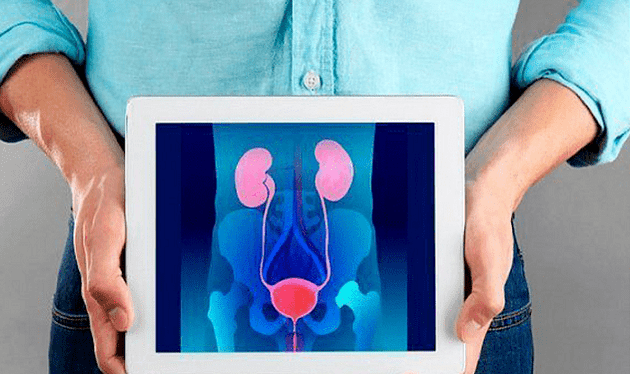Prostatitis is a common urological disease. The frequency of visits to a doctor for this reason in the United States, for example, is 1% (of all visits to a doctor).

Prostatitis is a condition caused by an inflammatory lesion of the prostate gland. This is an exclusively male disease that can begin at almost any age over the age of 20.
Forms of prostatitis
There are the following main forms of the disease:
- acute prostatitis;
- chronic bacterial prostatitis;
- bacterial prostatitis;
- chronic prostatitis (chronic pelvic pain syndrome).
Most often, prostatitis is caused by exposure to bacteria or viruses. People who are weakened as a result of other diseases (including chronic ones) are especially susceptible to it, and prostatitis can also occur as a result of increased stress, stress, hypothermia, bad habits (alcoholism), that is, all those factors that reduce the body's defenses. Therefore, prostatitis is divided into infectious and non-infectious.
Symptoms of prostatitis
The main signs of the disease include the following:
- pain in the lower back and abdomen, lower back, perineum, pelvis, groin, scrotum;
- increased urination (including nighttime urge);
- burning sensation when urinating;
- difficulty urinating, cloudy urine;
- muscle and joint pain;
- weakness, weakness, increased fatigue;
- headaches;
- in acute forms of the disease - fever.
The doctor will also note the swelling and soreness of the prostate gland.
Prostatitis not only seriously affects the quality of life, but can also provoke the development of other diseases and life-threatening conditions.
Important! These symptoms are a reason for urgent medical attention. Lack of treatment for acute prostatitis can lead to the development of chronic forms of the disease, as well as cystitis, pyelonephritis and even sepsis.
What medications are considered the most effective in treating prostatitis in men
The list of drugs for prostatitis includes the following groups of drugs:
- antibiotics;
- antipyretic drugs;
- non-steroidal anti-inflammatory drugs;
- pain relievers;
- phytopreparations.
Important! A doctor should be responsible for prescribing medication for the treatment of prostatitis. Therapy of prostatitis necessarily includes the use of antibacterial drugs, but due to the special structure of the capillaries of the prostate gland, not any antibiotic can penetrate into its tissues. A competent selection of the type, dosage, duration of the course of use is necessary for the treatment of prostatitis with this drug to be effective.
The most effective treatment regimens for prostatitis include medications based on medicinal herbs, as well as vitamin and mineral complexes that increase the body's resistance:
- tablets containing extracts of medicinal plants such as St. John's wort, herb canadian goldenrod, licorice root, rhizome with roots of Echinacea purpurea with a total content of flavonoids in terms of rutin 5%. The drug has a pronounced anti-inflammatory, bacteriostatic, analgesic effect, normalizes urination, increases the body's resistance.
- Capsules that contain an alcoholic extract of creeping palm, which has an anti-inflammatory effect, relieves puffiness, facilitates urination, has antiandrogenic properties selectively in relation to the prostate gland, without affecting the hormonal balance and without causing a decrease in potency. The drug is available in packs of 30 and 90 capsules.
- a vitamin and mineral preparation that contains the vitamins most important for men's health (D3, tocopherol, niacin) and zinc, as well as the amino acid L-arginine, which improves blood circulation in the genitals, eleutherosides (to increase immunity) and a complex of herbal extracts (yohimbe bark, Siberian ginseng root, damiana leaves, large-flowered mountain goat weed, muira puama, suma root, cayenne pepper).
Important! Phytopreparations are an effective addition to antibacterial therapy; consult your doctor about their use.
Prostatitis is a serious problem for modern men. You must carefully monitor your health, eat right, lead an active, but not exhausting lifestyle. If symptoms of prostatitis occur, be sure to seek medical attention; your doctor will prescribe all the medications you need to effectively treat and support your body.






























